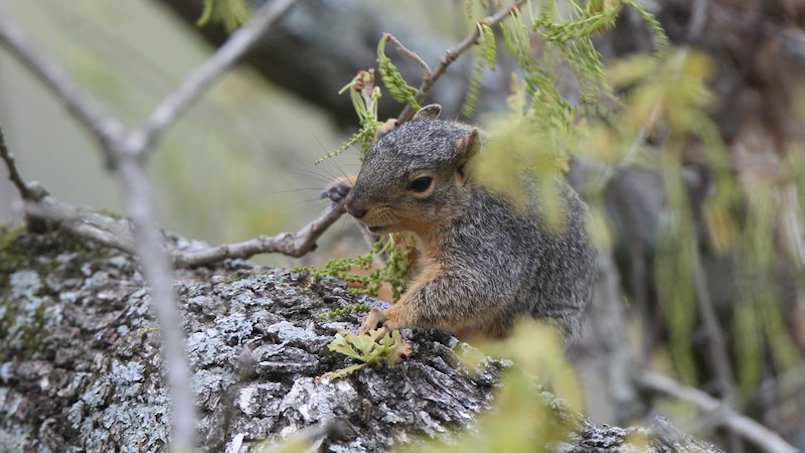11 May 2022 Squirrel season opens Sunday
LITTLE ROCK — With turkey hunting season wrapped up, many hunters will be putting away their shotguns until fall, but there’s another spring season that gives Arkansas hunters plenty of reasons to keep the scattergun cleaned and ready. Arkansas’s squirrel season opens May 15, and for those who enjoy chasing these treetop targets, it’s a great excuse to be in the woods.

Spring squirrel hunting has been an Arkansas tradition for decades, and typically was available from mid-May through mid-June. In 2013 the Arkansas Game and Fish Commission voted to extend the season for those who wanted to continue pursuing squirrels from May 15 to the end of February, making it one of Arkansas’s longest hunting seasons.
Fall season hunters have a few options when it comes to hunting styles: they can find a patch of hickories that are producing particularly well and sit a spell, or they can stay mobile, walking between patches of oaks and other hardwoods and keep a sharp eye for the small animals as they make their way from tree to tree. In spring, however, hunters should focus on one thing: mulberries.
It’s not uncommon to find squirrels in spring that have chests and chins stained purple from all of the red mulberries they’ve gorged themselves on as these small berries ripen. The key to identifying the trees that hold these magical mulberries is to focus on the leaves. Mulberry trees will have broad, pointed leaves that resemble a heart shape with a flat base. But the leaf also may have a depression in its margin that creates multiple lobes. In fact, a red mulberry tree is one of the only Arkansas trees that typically has a few unlobed leaves, a few leaves with two lobes and other leaves with multiple lobes all at the same time. The mulberries themselves look similar to small blackberry fruits.
The main precautions for hunters looking to explore the spring squirrel woods are the same as those for turkey hunters. Ticks, gnats, mosquitoes and other biting insects can be waiting to hop aboard anyone who isn’t prepared. A good bug suit combined with insect repellent is the best route to take. If a bug suit seems too expensive or cumbersome, hunters may want to substitute for it by spraying their clothing with permethrin, an insecticide that will help deter some insects. But a good bug spray using the chemical compound DEET is almost a requirement to keep the bugs at bay.
With the exception of the bugs, the only real thing to worry about is caring for your squirrels once they’re harvested. Keeping the carcass cool is more of a factor than in cooler weather. Wearing a vest with a mesh game pouch like those used during dove season works well to offer air circulation around your squirrel. If that isn’t available, carrying your squirrels by hand or hanging them from a game tote like duck hunters use is a good alternative to keeping the meat fresh and ready for a pot of squirrel and dumplings when you get home.
Content provided courtesy of Randy Zellers, Asst. Chief of Communications, AGFC.


